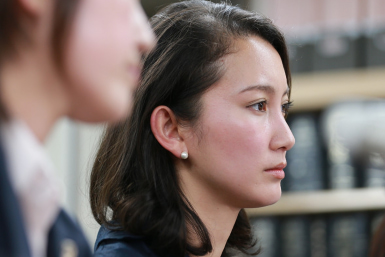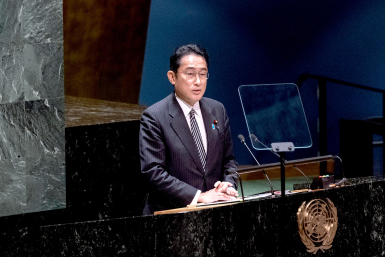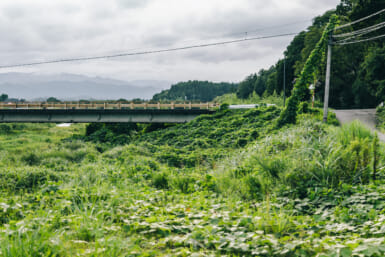In this week’s news roundup we report on a proposal by a Ministry of Justice subcommittee to adopt a joint custody system in Japan for divorced parents. The public are set to decide whether it’s ratified or not, but even if it is, will it make a significant difference? Vincent Fichot doesn’t think so. The French father of two, who hasn’t seen his kids since August 2018, gives us his thoughts on the proposal. Last year, he staged a hunger strike outside the national stadium.
Also this week, we hear from Megumi Yokota’s mother, 45 years on from her daughter’s abduction. There’s a tragedy in Osaka Prefecture as a toddler dies from heatstroke after her father accidentally leaves her in his minivan. Japanese filmmaker Toru Kubota returns home after being released from prison in Myanmar. And there’s finally some good news for the Japanese tourist industry as the number of travelers arriving from abroad soars. In sport, the Japanese men’s soccer and rugby teams both lose.
Proposal to Introduce Joint Custody in Japan
From December the Legislative Council will start receiving comments from the public regarding child custody rights for divorced parents. On Tuesday, a subcommittee of Japan’s Justice Ministry put forward an interim draft with two options. The first is to maintain the current Civil Code, granting sole custody to one parent after divorce. The second is to fall in line with international standards and adopt a joint custody system. This would seemingly be a positive move for estranged parents. However, Vincent Fichot feels it’s all “just a masquerade.”
“For 28 years, Japan’s been breaching the UN Convention on the Rights of the Child to allow regular contact with both parents,” he says. “This is something that’s protected by the Japanese convention. The fact they’re now asking public opinion about it shows the disregard they have for a treaty they ratified. Also, the devil’s in the details. Joint custody must be agreed to by both parents. A parent abducting a child today isn’t going to suddenly select joint custody tomorrow.
“If they can’t agree, it’s left to the discretion of judges who’ve been allowing child abduction for more than 20 years,” continues Fichot. “On top of all that, there’s no discussion about retroactivity in regard to the 3 million children who’ve been kidnapped. In a recent report by the Human Rights Committee, Article 45 criticized Japan in what was the first time for the UN to call on the country to respond to cases of ‘Parental Child Abductions.’ It was pretty strong, yet there’s no mention of abductions in these proposed law revisions.”
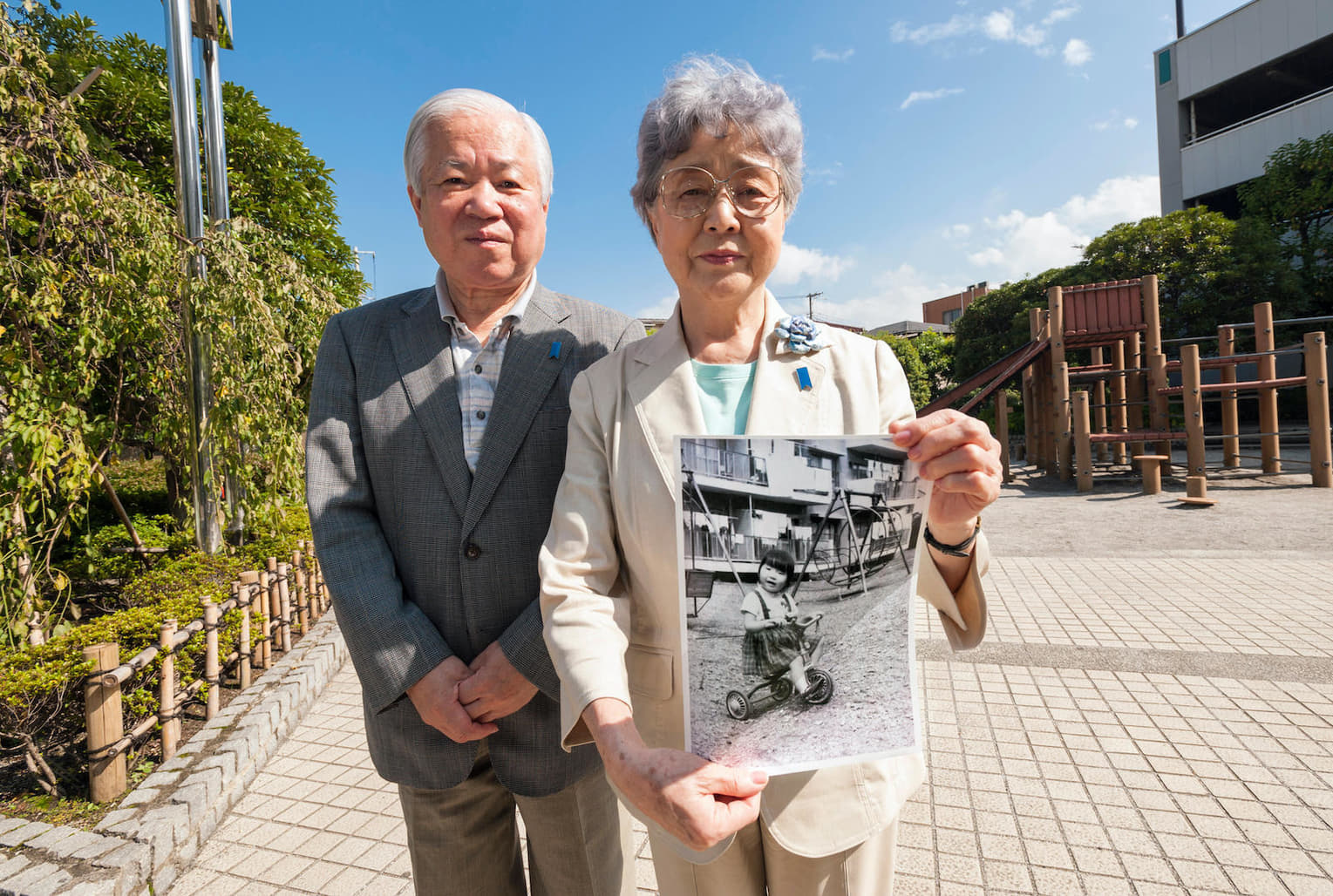
The late Shigeru Yokota and his wife Sakie with a picture of their daughter Megumi | Image by Robert Gilhooly via Alamy Stock Photo
Forty-Five Years on and Still No Answers
“There’s nothing more painful than knowing nothing at all.” These were the words of Sakie Yokota, 86, who was speaking to Kyodo News ahead of the 45th anniversary of her daughter’s disappearance. Megumi Yokota was kidnapped by North Korean agents in Niigata while returning home from badminton practice on November 15, 1977. She was just 13. Megumi’s one of 17 Japanese nationals officially listed as having been abducted by North Korea in the 1970s and 1980s.
In 2002, five abductees returned to Japan. Pyongyang then claimed eight others, including Megumi, had died while the rest never entered the country. DNA tests, however, proved that the cremated remains sent by the North were not those of Megumi. “What has the Japanese government been doing all these years?” asked Sakie. “We need somebody with a strong heart to have talks with North Korea. Only by repeating such talks can we expect some action from their side.”
Japanese Filmmaker Released from Prison in Myanmar
Myanmar’s junta announced on Thursday that it was releasing close to 6,000 prisoners to mark the country’s National Victory Day. Among those to be pardoned was Japanese filmmaker Toru Kubota who reportedly flew home yesterday. He was detained by plain clothes officers on July 30 of this year after taking pictures and videos of demonstrators at a flash protest in Yangon, the largest city in Myanmar. Last month, he was sentenced to 10 years in prison.
“This is a long overdue but welcome step,” Teppei Kasai, Asia program officer for Human Rights Watch told Tokyo Weekender. “Needless to say, they should’ve never been detained in the first place. It’s also important that the international community, including the Japanese government, continues to pressure the junta to immediately and unconditionally release thousands of others who’ve been arbitrarily detained since the 2021 military coup.” Former British envoy Vicky Bowman, Australian economics adviser Sean Turnell and an unidentified American were also released.
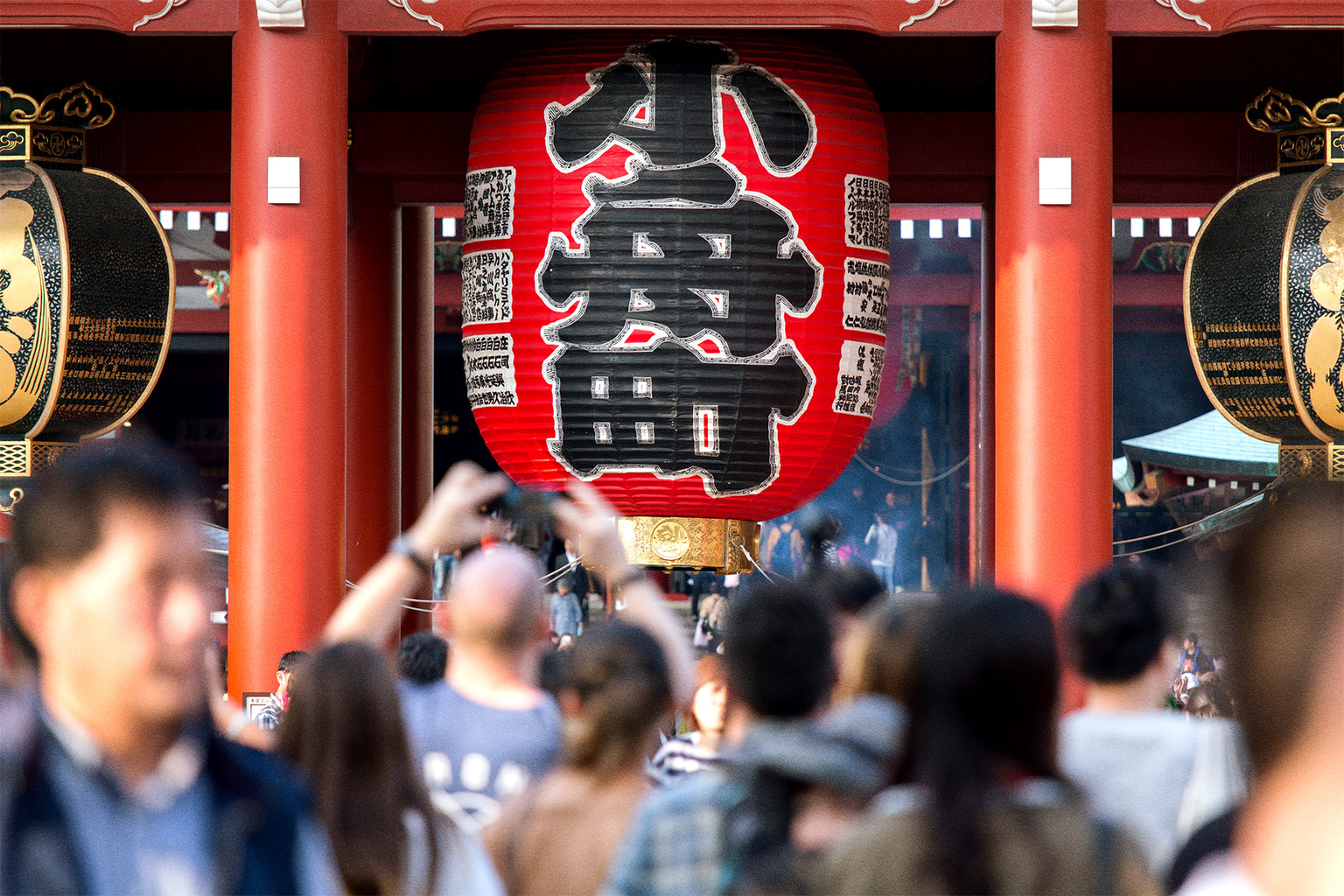
Foreign tourists are finally returning to Japan
Large Increase in Foreign Tourists in October
The number of people visiting Japan from abroad almost reached 500,000 in October, more than double the amount for September. It’s also 22.5 times higher than the figure for the same month last year. In total 498,600 travelers arrived in the country from overseas, including 288,909 who came here for sightseeing purposes. It’s undoubtedly a boost for the tourist industry, but still well below pre-pandemic levels. In October 2019, more than 2 million foreign tourists visited here.
Japan only started allowing foreign tourists to enter in June of this year as part of designated packaged tours. From October 11, individual short stayers without visas were finally permitted to enter. The Japan Tourism Agency expects inbound tourism to recover to pre-pandemic levels by 2025. High-profile events taking place that year such as Expo 2025 in Osaka and the Tokyo World Athletics Championships should help in that regard. The long-term goal is 60 million visitors annually by 2030.
Toddler Dies After Father Forgets to Drop Her Off at Nursery
A 2-year-old girl died on Saturday after being left in a minivan for around nine hours. Seira Fuchigami’s father put his three daughters in the vehicle at approximately 8am on November 12 to take them to their separate nursery schools in Kishiwada, Osaka Prefecture. He dropped off the eldest daughter first followed by the youngest one. Tragically, he then headed home, forgetting about Seira.
When he went to pick up his second daughter from the nursery school in the same van at just after 5pm, the father was informed by a teacher that she hadn’t turned up. He then found the unconscious girl in the back of his vehicle. She was quickly rushed to hospital, but her death was confirmed soon after. According to the autopsy, she died of heatstroke.
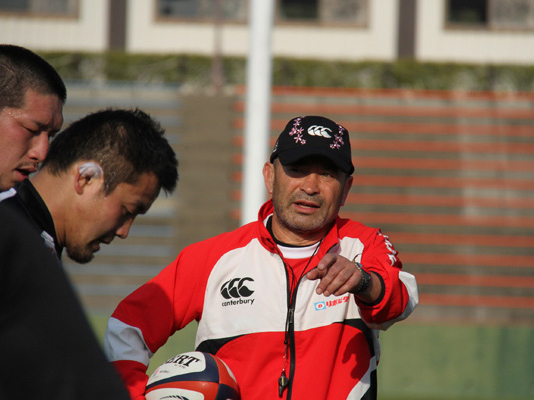
Eddie Jones’ England easily defeated his former team at Twickenham | Image courtesy of the RFU
England Far Too Strong for Japan
In men’s rugby, Japan were easily beaten by England at Twickenham in London on Saturday. The hosts, who were defeated by Argentina the previous weekend, ran in seven tries to win the game comprehensively 52-13. For Jamie Joseph’s men, it was a sobering afternoon following the impressive display against the All Blacks last month. Their only try came from replacement scrum-half Naoto Saito. Next up for the Brave Blossoms on Sunday is France, the world’s second-ranked team.
In men’s soccer, a second-string Japan XI lost to Canada in their final warm-up game before the World Cup. Nagoya Grampus winger Yuki Soma gave the Samurai Blue the lead inside 10 minutes. After that, Hajime Moriyasu’s men struggled to get hold of the game and looked particularly shaky on set pieces. Canada’s equalizer came from a corner that was poked home by Steven Vitória. In the 92nd minute Miki Yamane tripped Mark-Anthony Kaye to give The Canucks a penalty. Lucas Cavallini just about snuck it over the line.


